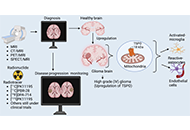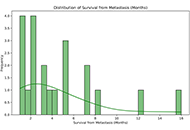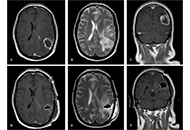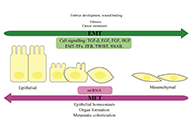
Current Approaches to Malignant Tumors of the Nervous System
Guest Editor
Katrin Sak E-Mail
Independent senior researcher, NGO Praeventio, Estonia
Research Keywords: Effects of phytochemicals (flavonoids) on human health, anticancer action of flavonoids, interactions of flavonoids with conventional drugs
About the Special lssue
Malignant tumors in nervous system develop when abnormal cells form in any part of the brain or spine area. Tumors which start from glia include gliomas constituting a heterogenous group of diseases. Such brain tumors are often intractable and present one of the most challenging diagnoses to treat. Almost half of all brain tumors are known as glioblastomas multiforme. Due to their diffusive invasion to the life-critical structures of the brain and also frequent failure of chemotherapy, the median survival of patients is only about a year with no significant improvements over the past decades. Accordingly, there is an urgent need to find new molecular targets and more effective drugs against gliomas. Tumors that arise from neurons include medulloblastomas. They are the most common brain cancers among children. Although the therapeutic modalities are currently improved, the majority of survivors suffer from various life-long side effects. Again, novel therapeutic strategies are highly needed. The third frequently occurring nervous system malignancies are neuroblastomas, affecting most commonly children age five or younger. The survival rate of pediatric patients with this extracranial neuroendocrine tumor has also remained dismal, definitely requiring further thorough studies. In this way, this special issue is devoted to all kinds of studies on malignant tumors in nervous system, contributing to the better understanding of molecular mechanisms of pathogenesis as well as identifying novel therapeutic modalities to improve the prognosis and quality of life of patients.
Keywords: Brain cancers, gliomas, medulloblastomas, neuroblastomas, surgical resection, chemotherapy, radiotherapy, molecular mechanisms, cellular signaling cascades, novel anticancer drugs
Published Articles



